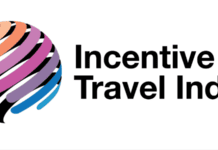 Having the right speakers on the agenda can help drive attendance, but speaker sourcing can be challenging. Here are five tips on how you can find the right speakers for your next meeting or event.
Having the right speakers on the agenda can help drive attendance, but speaker sourcing can be challenging. Here are five tips on how you can find the right speakers for your next meeting or event.
Sourcing speakers that will really resonate with an audience has always been a challenge. But now that almost half the planners in a recent survey said they anticipate increasing the number of speakers they’ll be using for their events over the next 12 months, speaker sourcing is edging onto the top 10 list of concerns for 2024. While it’s still not up there with cost controls and room rates, 14% of respondents listed speaker sourcing as their top concern for 2024.
Fortunately, the latest survey data from Community Brands, a software and services provider, also provided some tips to help make the speaker sourcing job a touch easier. The company, which commissioned Edge Research to conduct the online survey of 541 business meeting and event professionals who plan at least five events per year, said these ideas can help you increase both the quality and quantity of speakers:
- Start the abstract submission process as soon as possible. This will give you time to cast a wider net and reach out to speakers you may not have known about in previous years.
- Broaden your potential speaker prospect list. The study suggests some ways to do this, including reaching out to past speakers for their suggestions and using multiple channels to promote your submission process, including both traditional email and social media channels.
- Make abstract submissions as easy as possible. The study recommends keeping the abstract submission form as simple as possible, streamlining the process to only ask for the absolute essentials and using multiple choice questions that don’t require potential speakers to write out a text response.
- Let technology help. There’s a wide variety of abstract submission software available now that can help you let people know you received their submissions, manage and review those submissions, and let speakers know when their submission has been accepted.
- Seek out and embrace a diverse speaker lineup. Attendees increasingly want to see and hear from speakers from a wide diversity of demographics — especially those that mirror the demographics of the audience — and areas of expertise. The survey recommends embracing a speaker lineup that represents diverse backgrounds and professional expertise, saying that will “contribute to a more satisfying, informative and engaging experience for attendees.”
A few other ideas that may be useful when you begin the speaker sourcing journey:
- Have a clear idea of your event’s goals and objectives, as well as the industry’s hot topics, trends and challenges, and the needs and expectations of your target audience.
- Once you have the list narrowed down, be sure to check out any available video of previous work and contact references to ensure the style and content of the speaker will help deliver on your event’s, and your attendees’, goals and objectives.
- Provide clear and detailed speaker instructions, from the basics of date, format and venue, to content, structure and delivery, along with any special AV or room set needs they may require.
- Collect and analyze feedback data on speaker performance and audience satisfaction — from both the audience and the speaker. What went well, what didn’t, and how can you improve the overall experience from both sides of the mic for next year’s conference?
You May Also Be Interested In…
Speaker Diversity: The Meetings Industry Still Falls Short
Mike Dominguez on 7 Economic Trends in the Year Ahead










